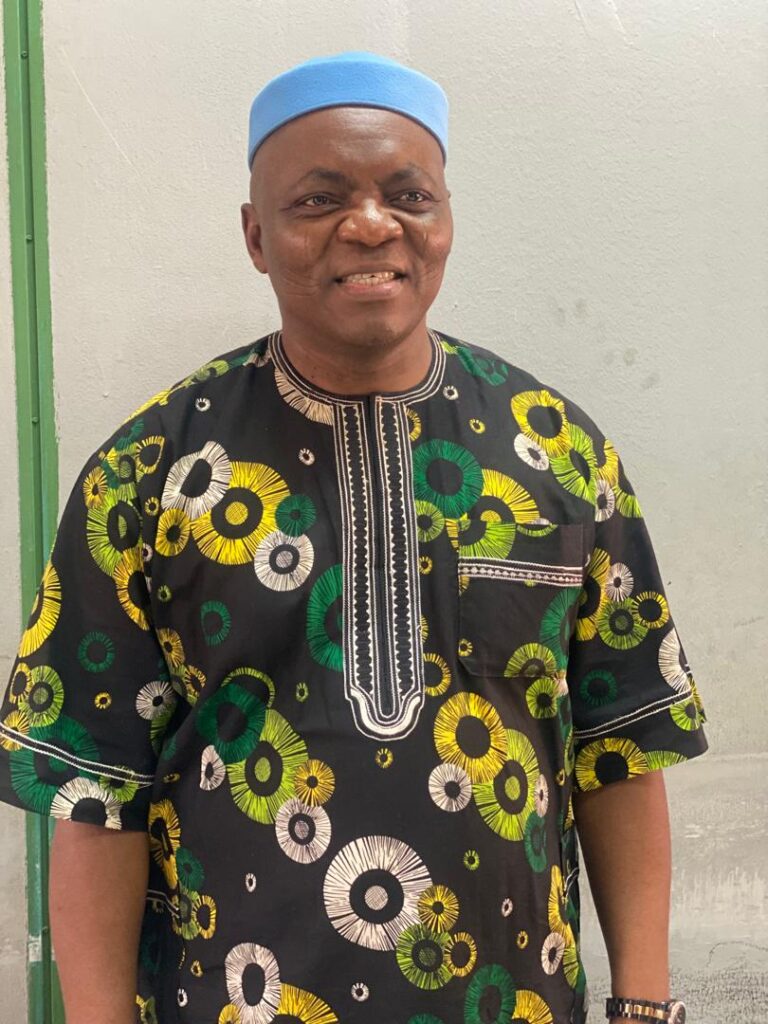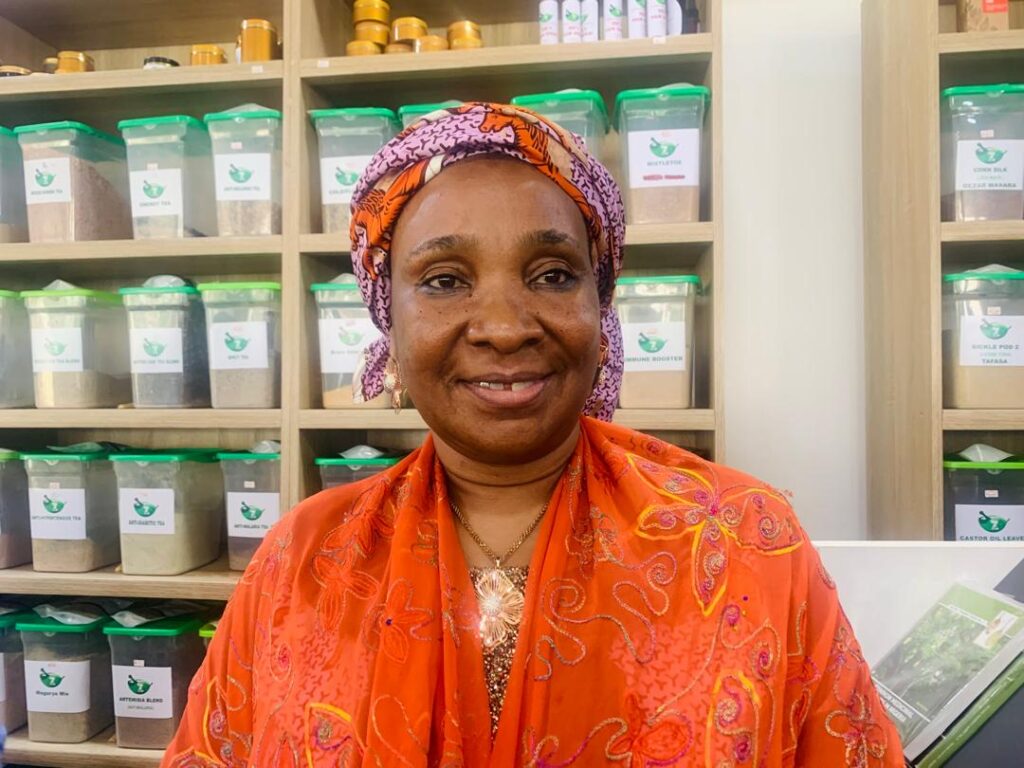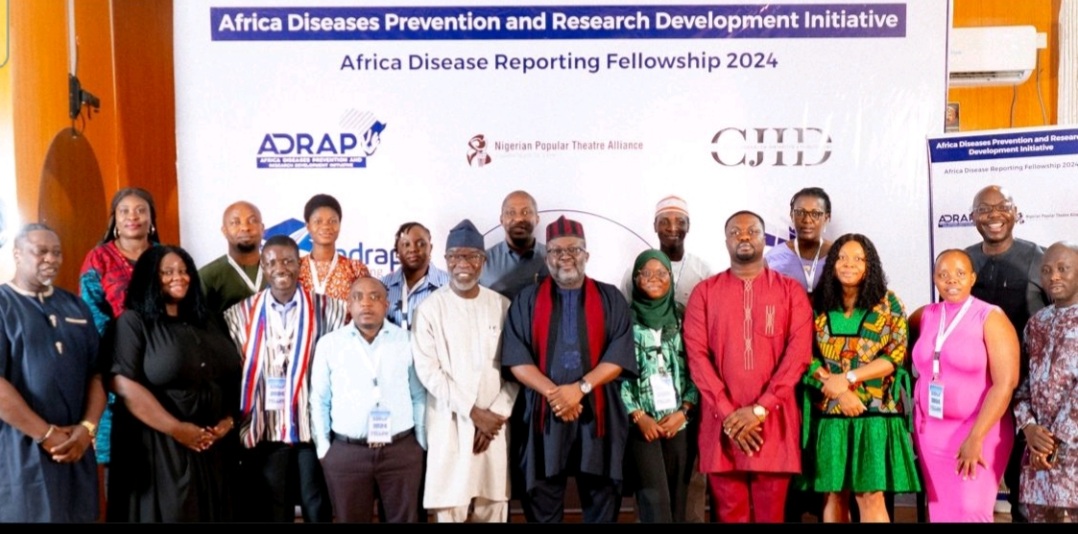Pharmaceutical experts in Nigeria are advocating for a transformative shift in Africa’s healthcare paradigm, asserting that the continent holds the key to addressing its health challenges. Professor Martins Emeje, Director General and CEO of the Nigeria Natural Medicine Development Agency (NNMDA), and Dr Zainab Ujudud Shariff, the CEO of Zee’s Herbal Pharmacy, emphasised the need for alternative medicine and abundant resources available within Africa, urging Africans to embrace indigenous solutions to healthcare issues. Nnenna Ibeh in this article writes that the call to action comes amid the inaugural fellows’ visit of the Africa Disease Reporting Fellowship (ADReF), a platform aimed at equipping African journalists with essential tools to tackle existing and emerging health crises on the continent.
Harnessing Africa’s healing potential in traditional medicine
Pharmaceutical experts in Nigeria have said that it is time for Africa to start looking inward for solutions to challenges in its health systems and healing exploits.
Professor Martins Emeje, the director general and chief executive officer of the Nigeria Natural Medicine Development Agency (NNMDA) said nature has already provided everything that is needed by humans in every environment they find themselves.
Speaking during a visit by the inaugural fellows of the Africa Disease Reporting Fellowship (ADReF), Emeje held that raw materials, herbs and processes needed for healing and curing diseases plaguing the continent are not far-fetched.
ADReF is organised by the Africa Disease Prevention and Research Development (ADRAP) Initiative in partnership with AkweyaTV, IsuMedia, Africa Science Technology and Innovation and Premium Times.
The fellowship aims to equip African journalists with tools and key information on existing and emerging diseases in the continent and possible ways to tackle them.
For Emeje, a Pharmacist and a Professor of Drug Delivery and Nanomedicine, Africans must begin to go the extra mile to make use of gifts available across the continent.
He said, “For every disease, for every ailment, the solution to that disease or ailment is within that environment where it exists. So, if there is a disease in Rwanda and you are going to America to go and look for treatment for that disease, it is because in Rwanda, you are deficient. The deficiency is in looking for the solution because it is there.
“You can’t get it unless you deliberately go out to look for it. That is why I told you earlier that there is nothing that has not been done; there is no disease that is not in existence and there is no solution that is not available. If the disease was not there you can’t discover it, at the time we did not discover it, we were limited by knowledge and that is our problem not nature’s.”
Quit the blame game
Speaking further, Emeje tasked journalists and scientists to remain resolute in their effort to seek ways to solve African problems using home-based solutions and in turn champion better narratives about the continent.
He noted that there is a need for Africans to quit the blame game and resolve to better develop the continent in areas of health, and education among others.
“For us in the health sector, for every disease, every drug we manufacture, there is only one question to be asked – the benefit and the risk, which one is bigger? And that is what is expected of you too as journalists.
“In Africa, we all have similar problems and the problem is for us to harmonise, yes, we were colonized but up until today, we still blame the colonialists for colonizing us. For me, that is brain laziness.
“We were not alone in colonisation; many countries who suffered the same fate have gone far and have become nuclear powers of the world today. So, our inability to develop and get out of it is our problem and has nothing to do with the colonial masters,” Emeje said.
He also reminded the people that even before the influx of the colonial masters, Africans were healing themselves and there was no disease that its treatment was sought after outside the African continent.
In the same vein, Dr Zainab Ujudud Shariff, the CEO of Zee’s Herbal Pharmacy, Nigeria the most important thing is for Africans to understand the concept of ‘Alternative Medicine’ and ‘Complementary Medicine’.

The World Health Organisation defines complementary or alternative medicine as a broad set of healthcare practices that are not part of that country’s tradition or conventional medicine and are not fully integrated into the dominant healthcare system.
According to the organisation, these practices are used interchangeably with traditional medicine which has a long history of the knowledge, skill, and practices that are based on the theories, beliefs, and experiences indigenous to different cultures. They are also used in the maintenance of health as well as in the prevention, diagnosis, improvement or treatment of physical and mental illness.
Explaining further, Shariff, a pharmacist and former Head of Traditional, Complementary and Alternative Medicine (TCAM) at the Federal Ministry of Health stated that different scholars have said that traditional medicine is alternative while others believe it is complementary.
Traditional medicine not ‘bad medicine’
Irrespective of whether traditional medicine is complementary or alternative, Sharrif warned that it is time for Africans to stop referring to traditional medicine as ‘bad medicine’.
Her words: “Wherever you come from, whether you like it or not, your people use your herbs in their way and it is part of your culture. So do not say traditional medicine is not good because it means your culture is not good.
“The healing systems established by your grandparents or your forefathers are gifts given to them by God to heal individuals. So that is why traditional medicine, whether white people like it or not, is part of our culture.
“My traditional medicine in Ghana becomes alternative because Ghana has its own medicine. Traditional medicine is practiced by 80 per cent of people especially those in rural areas. And we are the ones to promote our traditional medicine, not them,” Shariff added.
She also called on Africans with advanced knowledge in science to collaborate with herbalists in the rural areas and communities to, rather than castigate, improve on what is available (herbs and medicines) across the continent.
Foreigners benefit more than true owners of African medicines
Warning that foreigners including Indians and the Chinese seem to be benefitting from nature’s gift to Africa, Sharif said countries have mastered the art of packaging their goods and have continued to sell and make good profits.
She confirmed that most of the medicines sold in African pharmacies are products of raw materials cultivated and harvested from farms across Africa.
She added, “And I want to be a bit spiritual in the sense that wherever you are, God gives you healing plants, so why are you saying that your plant is wrong? Does it mean that it is the only plants that come from China and India that are right?
“Sadly, recent studies have shown that everywhere you see the influx of the Chinese, they go to our farms and buy up the raw materials. For example, the hibiscus sabdariffa they buy from the farmers and pay them upfront, then they (Chinese) package them and sell them in their countries. They buy our moringa oleifera and package them and send them back to us – selling them as green tea.”
For Shariff, the bulk of the job lies in Africans accepting what nature has made available to them, using and promoting these gifts for Africa’s benefit.

She said, “They (the Chinese and Indians) buy off our Acacia, the seeds which are called coffee – our coffee, you can make coffee from it – they buy it, process and send it back to us. So, can I ask, what is wrong with us? We are sick and it is very sad.
“Even Ayurveda, the Indian medicine is complementary, the Chinese traditional medicine, you see them (Chinese) doing acupuncture all over now; acupuncture is part of complementary but it is traditional medicine – they have only played their own nicely and brought it to the bare front and we have accepted it.”
Recommendations
To harness Africa’s healing potential, experts recommend a concerted effort to embrace traditional and complementary medicine. The experts at the workshop have also highlighted the importance of understanding and promoting indigenous healing practices. This then calls for collaboration between scientists and traditional herbalists to enhance existing remedies and improve healthcare outcomes across Africa. Additionally, there is a pressing need to dispel misconceptions surrounding traditional medicine and encourage its acceptance as a valuable component of Africa’s cultural heritage.
Here are other specific recommendations:
- Foster Collaboration: Encourage collaboration between scientists, healthcare professionals, and traditional herbalists to enhance traditional remedies and promote their integration into modern healthcare systems.
- Promote Education: Increase public awareness and education about the benefits and efficacy of traditional and complementary medicine to dispel misconceptions and foster acceptance within African communities.
- Invest in Research: Allocate resources towards research and development in traditional medicine to scientifically validate the efficacy and safety of indigenous healing practices.
- Support Local Herbalists: Provide training, resources, and support to traditional herbalists to ensure the sustainability of their practices and the preservation of traditional knowledge.
- Strengthen Regulatory Frameworks: Develop robust regulatory frameworks for traditional medicine to ensure quality control, safety, and efficacy of herbal remedies while safeguarding public health.
- Incorporate Traditional Medicine into Healthcare Systems: Integrate traditional medicine into mainstream healthcare systems to provide patients with a holistic approach to healthcare that includes both conventional and traditional modalities.
- Encourage Cross-Cultural Exchange: Facilitate exchange programs and collaborations between African countries and other regions to share knowledge and best practices in traditional medicine.
- Promote Research Partnerships: Foster partnerships between African research institutions and international organizations to leverage resources and expertise in advancing traditional medicine research and development.
- Empower Local Communities: Empower local communities to take ownership of their healthcare by promoting self-care practices, community-based healthcare initiatives, and traditional healing ceremonies.
- Advocate for Policy Support: Advocate for policy support and government recognition of traditional medicine as a vital component of healthcare systems, ensuring equitable access to traditional healing practices for all Africans.
Conclusion
The exploitation of Africa’s natural resources by foreign entities underscores the urgency for Africans to reclaim ownership of their traditional healing practices. While acknowledging the contributions of complementary medicine, experts emphasize the need for Africans to take pride in their heritage and leverage their indigenous knowledge for the continent’s benefit. By fostering collaboration and promoting local solutions, Africa can unlock its vast healing potential and chart a path towards improved healthcare outcomes for its people.

